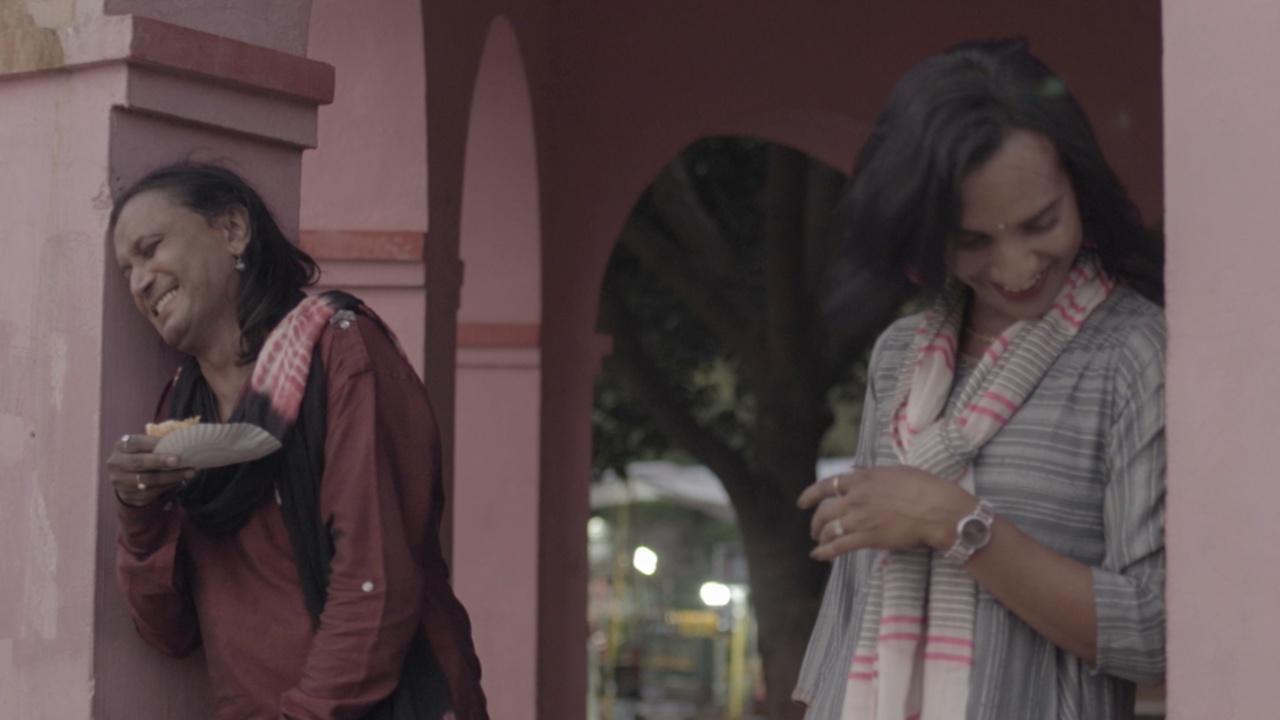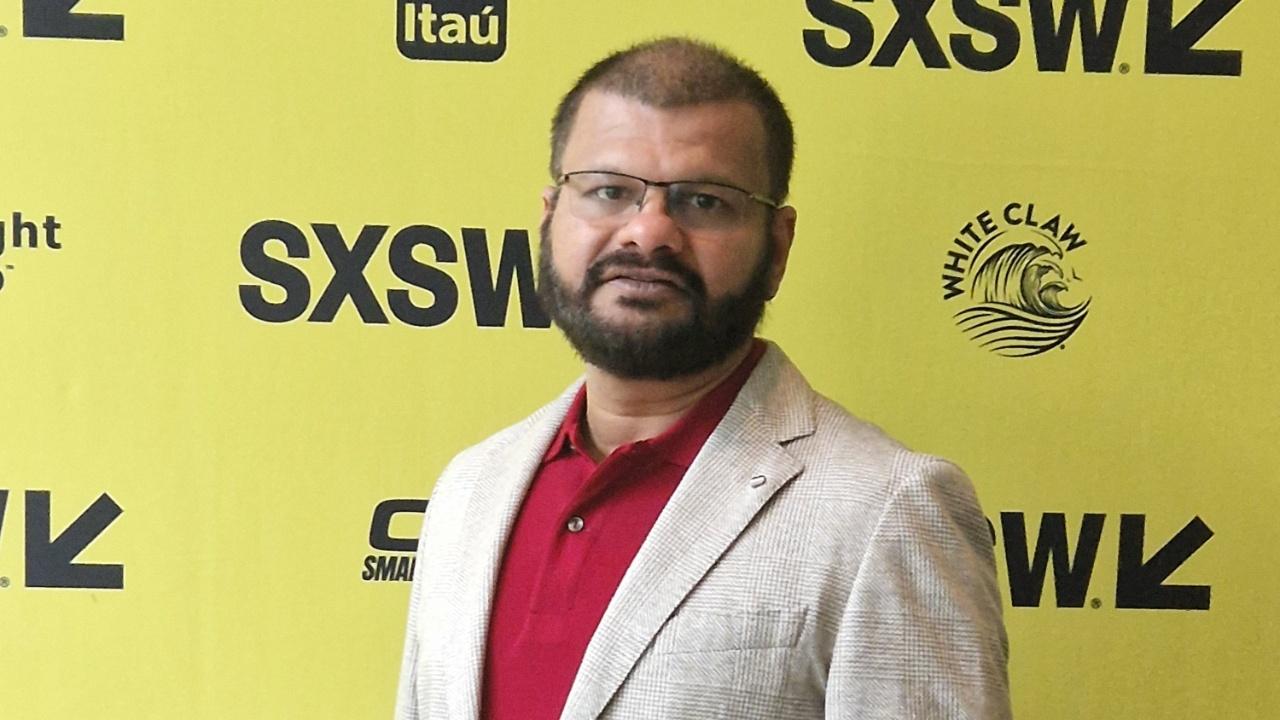Ek Jagah Apni won accolades at the 14th Kashish Mumbai International Queer Film Festival. Film’s producer Neeraj Churi talks about the nuance of queer writing, casting LGBTQIA+ actors, intersectionality and more

Ek Jagah Apni won a Special Jury Mention at the 14th Kashish Mumbai International Queer Film Festival. Photo courtesy: Lotus Visual Production
Founder of Lotus Visual Production, Neeraj Churi turned producer to bring the vibrant stories of the South Asian LGBTQIA+ community to screens worldwide. With a diverse range of projects spanning feature films, documentaries and short films under his belt, he is dedicated to creating and supporting the authentic South Asian queer representation everyone deserves.
ADVERTISEMENT
An alumnus of the New York Film Academy, Churi has earned accolades across the globe for his titles including Sisak (2017), Queer Parivaar (2022), and U for Usha (2019). While he was a part of Sheer Qorma (2021) starring popular Indian actresses Shabana Azmi, Divya Dutta and Swara Bhasker, his latest Ek Jagah Apni, which follows the lives of trans women trying to find basic accommodation, features trans actors. Ek Jagah Apni was recently screened and won a special mention award in the best feature film category at the 14th Kashish Mumbai International Queer Film Festival. In an exclusive chat with Mid-Day Online, he speaks about the queer gaze, casting LGBTQIA+ actors, intersectionality, international film festivals and much more.
Here are the edited excerpts
Who is your favourite queer filmmaker? As a queer adolescent, which films inspired you the most?
Churi: Growing up in the 80’s, we didn't have very many queer characters on the screen or TV. Most trans representations or effeminate men were being used for crude comedy or as villains. Around 1996/1997, movies such as Fire (directed by Deepa Mehta, starring Shabana Azmi and Nandita Das) came out of India only to be met with severe backlash. Later when I had moved to the US, movies such as “In and Out” served as an influence. Celebrities like Ellen DeGeneres coming out, also gave me some hope. Later in the 2000s, filmmakers like Sridhar Rangayan, with his films Pink Mirror and Your Emotionally and Onir's film My Brother Nikhil, boldly brought to light Indian queer experiences. Both of them have served as early influencers for me.
LGBTQIA+ individuals often end up creating the art they craved for growing up in the absence of queer representation. How much of this drives you?
Churi: My journey has certainly been shaped by lack of queer representation in Indian films and TV. I had two choices, continue to complain or do something about it. I was fortunate to meet Sridhar and Faraz Ansari around 2015 who were starting work on their queer films and helped me realise the challenges filmmakers faced in various aspects of making and exhibition of queer films. From then onwards, I decided to sponsor a grant in India to make LGBTQIA+ short films, and also actively started scouting talented filmmakers who were making similar projects. We also have a YouTube channel that puts out original queer titles for improving access to community members and allies so that they can be entertained as well as educate themselves or those around them.
When LGBTQIA+ people tell their own stories, there is a certain depth of nuance that comes in. What do you believe are the markers of the queer gaze when it comes to storytelling in film?
Churi: When queer people are telling their own stories, they are often rooted in their own experiences or experiences of people close to them. Queer writers often tend to write complex multidimensional characters and compelling story lines set in a world that is chequered with all sorts of emotions. One can see the struggles, aspirations, frustrations, fear and tenacity of the community reflected with all nuances.
LGBTQIA+ directors know to present the script with all the subtleties and facets. They don’t shy away from showing queer intimacy and tend to portray queer physicality with the delicateness it deserves. They are able to strike the right balance between celebrating queer love and portraying physical passion. More importantly they know how to handle difficult conversations around violence, bullying and coercion in a way that is less triggering and more thought-provoking.
There is a constant demand for LGBTQIA+ actors being cast in LGBTQIA+ roles. Your recent movie Ek Jagah Apni follows the story of two trans women and features trans actors. You have also worked with cis-het actors in your previous features. What are the differences in terms of the filmmaking process that you’ve observed?
Churi: I would like to make an important distinction between gender and sexuality. While one often expresses the gender they identify with, the matters of the gender they love and desire are often private. So, when we have storylines involving transgender characters, we strictly work on casting transgender or non-binary individuals to play those roles. Actors from these communities bring in their lived experiences adding multi-hued facets to the role. Casting gay and lesbian roles can be challenging especially in India where many actors may not be that forthcoming about their sexuality. My experience has been that actors who are gay or lesbian or bisexuals tend to give a convincing performance and are at ease especially when portraying same-sex love and intimacy.

Producer of acclaimed films Sisak, Sheer Qorma, Neeraj Churi's latest, Ek Jagah Apni is a sensitive portrayal of the pursuit of a living space for trans individuals starring trans actors. Photo courtesy: Neeraj Churi
After premiering at the Tokyo International Film Festival (2022) and being selected for Cannes Marche Du Film 2022 as part of NFDC-Goes-To-Cannes, Ek Jagah Apni was recently screened at the 14th Kashish Mumbai International Queer Film Festival. How has your experience been in comparison to other global film festivals?
Churi: The love you get from your own family often outweighs the accolades one gets outside. Hence, appreciation by audiences in India is always heartening. Our film has been well received playing at packed theatres at the International Film Festival of Kerala where it won 2 awards including one for both our trans leads. Our film is probably the first one to win Audience choice award in Global category at the prestigious SXSW (South by Southwest film festival). Our aim with this film is to sensitise the world, especially Indian audiences on issues faced by the Indian trans community, so we hope we get to bring our film to a wider audience with a theatrical release.
When stories are based beyond the Western realms, intersectionality becomes a central figure when depicting the lived experiences, and issues concerning the LGBTQIA+ community. In a country like India where awareness is an issue, how can filmmakers take on intersectionality in queer cinema without overwhelming the audience?
Churi: In India, any film or TV project is rarely without intersectionality--given the diverse society we live in. As Indians, we are amazingly complex individuals and every story has a lot to unpack. A successful movie or series always manages to incorporate the nuances of intersectionality through layered plots, and memorable character arcs that entertain and make us think.
A good movie or series often offers multiple layers of interpretation depending on intellectual curiosity of the viewer. Some audiences are enthralled with the imagery while others are fascinated with subtext. A good way to incorporate overlapping issues is by ensuring that there is something for everyone to feel entertained and informed at the same time. If you see all our past projects like short films Muhafiz, Gair, My Mother's Girlfriend, even our UK production Queer Parivaar and features like Ek Jagah Apni, they bring out complex issues through stories that grab our attention and make us think at the same time.
You’ve received honours across the world for your path-breaking South Asian LGBTQIA+ films. Do you have a dream project? What’s next for Neeraj Churi?
Churi: We are working on a few feature length productions and short projects that range from movies to documentaries. My dream project is a series we are developing with a talented trans writer that will have a largely trans cast and crew. For this, we will be training and upskilling members of the trans community via a series of workshops. The trained members can work in various aspects of the series in various departments gaining valuable experience that they can use to build their careers in the film industry.
We are actively seeking collaboration with corporate bodies in India who can sponsor the workshops. The series goes beyond the usual tropes and digs deeper into the array of issues and experiences faced by India's trans community.
Also Read: Sushant Divgikar: Mumbai has shaped me to become the best version of myself
 Subscribe today by clicking the link and stay updated with the latest news!" Click here!
Subscribe today by clicking the link and stay updated with the latest news!" Click here!








